Hitori Dake is an alternative rock singer-songwriter with an emotive vocal delivery often compared to the style of Matchbox Twenty front-man, Rob Thomas. He writes from an honest and vulnerable perspective, crafting engaging stories with hooky melodies & has been bringing his music to life on stage for over two decades. On January 6th he released his latest and most ambitious 12 track global collaborative project, “Limbo”. In an exclusive interview, Hitori Dake gave us some precious insight into what makes him and his music tick, and how “Limbo” came to be.
- When did you first decide or discover that you wanted to take music seriously, and how did that process evolve?
Hitori Dake: I’m not sure I ever intentionally decided to take my music seriously, but I do think making music is an important component of who I am.
- What inspired the creation of your pseudonym, Hitori Dake?
Hitori Dake: My focus when releasing the album did not involve delusions of grandeur. Instead, it was seeing a project through to completion. Putting out an album was an after- thought. I appreciate the importance of brand identity and considering an ageing rock-star wannabe is probably not the ideal product; I created the ambiguous, Hitori Dake. In Japanese it loosely means, “Only one person”. Being a solo artist, it seemed to be a good fit.
- Can you tell us more about your love for Japan and it’s culture?
Hitori Dake: My first trip to Japan was in 2015 and even with the pandemic disruptions to travel, have been fortunate enough to have re-visited many times since. It was never on my radar during my early travelling years. I fell hard for the place almost instantly. Although multiculturalism is fantastic, there is something intrinsically attractive about a predominantly homogenous society which allows for an almost undiluted culture. I think many of my core values align with those of Japanese.
- Who are some of your biggest musical influences, and how have they shaped your sound?
Hitori Dake: Let’s put ABBA and the Thomas the Tank Engine soundtrack aside. I would say my first artist obsession was Prince. In years following it shifted to U2, Matchbox Twenty, Coldplay and Muse. I also love songs from the 80s. Having these influences being mostly mainstream, I developed an ear and liking to the commercial structure of a song. I began to try and imitate these formulae, concentrating on finding melodic hooks. I have always admired songs that seem so simple yet manage to create such a strong, unique and memorable sound.
- Can you tell us more about your experience fronting a cover band and paying tribute to Matchbox Twenty?
Hitori Dake: I was a late starter as a front-man and first to say somewhat a fish out of water. I consider myself an introvert, which is not usually on many front-man resumes. Having on occasion frequented dimly lit karaoke bars, I found my register was similar to that of Matchbox Twenty’s Rob Thomas and so was born the tribute show. Very early on we were threatened with legal action by the solicitors of Matchbox Twenty – we must have been the first tribute show in history to have had this happen. At the time I remember thinking both; This is not ideal, but also, How cool Rob Thomas knows we exist. We have been together for 15 years, all original members with the exception of our bass player with 13 years. We came together as strangers and are all great mates now. For anyone who has ever been in a band, know these circumstances are not very common. I feel very grateful.
- How would you describe your musical style to someone who has never heard your music before?
Hitori Dake: Hmmm that’s a tough one. There seems to be dark tones, angst and a sense of yearning in many of my songs. Possibly this is because the minor scales I prefer to write are a good match. Rock, Alternate Rock, Rock Pop?? You tell me J
- How do you balance your creative vision with the commercial aspects of the music industry?
Hitori Dake: In short I don’t. The song creation comes from a self-serving place. I just love writing songs and if I am happy (or mostly happy) with the end result, then it’s a win. Using commercial arrangements and focusing on hooks helps the songs find a relatable product. If by me doing what I love happens to find some modest success, it is an absolute bonus.
- What do you believe sets you apart from other artists in your genre?
Hitori Dake: Let’s be real here, I’m not reinventing the wheel. I’m just being me, warts and all. If a listener recognises something unique that is positive, well, that’s awesome and very flattering.
- What inspired the shift in your approach to producing your latest album, “Limbo”?
Hitori Dake: Technology, Internet and the wealth of musicians all over the world. I used Fiverr (not sponsored) to engage services of musicians from all over the world. It was an incredibly humbling experience finding so many extremely gifted artists. I loved the process of bringing it all together and seeing a song come to life. There is something special about knowing the drums from one song came from UK, the bass from Russia, the Keys from the Netherlands, the mastering from Serbia etc. Another aspect I really liked was by having such a diverse group of people I worked with, it allowed the songs not to all sound the same.
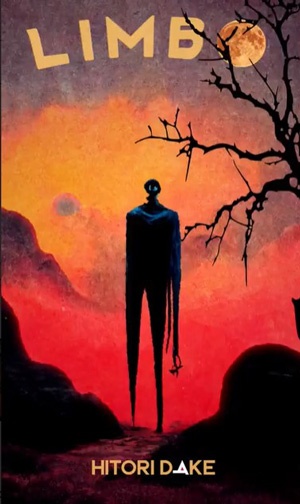
- How do you believe “Limbo” differs from your previous work in terms of sound, soul and technicality?
Hitori Dake: My first album was recorded using professional; and well established session musicians. Although very technical, it did lack soul. With this new process, I was able to find artists who absolutely loved music and their passion, talent and generous natures were able to give me a platform which I found really inspiring when it came to laying down vocals.
- How has using players from all corners of the world impacted the sound and inspiration for your new album, and how did that process come together?
Hitori Dake: As previously mentioned, it was amazing. I actually very much enjoyed the process of vetting the musicians. Sifting through hundreds of profiles for each gig.
- Where did you do most of your recording, production, mixing and mastering work, and were you also involved in any or all of those processes?
Hitori Dake: I would usually create a demo in my home studio. Perhaps a drum loop with acoustic guitar and piano only. I’d lay down guide vocals and then go from there sending it to the respective players. As each player added a piece of themselves, I would constantly adjust the direction of the song to support and highlight areas that excited me. I did a lot of mixing myself, but most of the mixing, mastering and technical direction came from a seller from Serbia; Zeljko Despic. I worked with him on the very first track and he mastered the very last. He was a huge part of getting the songs finished and he taught me so much. We are good friends now.
- Could you tell us something about your latest musical project “Limbo”, and what the highlights are to watch out for?
Hitori Dake: Ooooh ok. I struggled for years to find my sound. Like it or not, this album is me and I’m now content. Favourite parts of the album include the 3 duet tracks. I found a girl on Fiverr who had no previous work done. I recognised her talent and thought she would be perfect for what I envisaged. It wasn’t until months later I realised her own career had sky-rocketed. She has amassed over 200 million Spotify listens (not too shabby)
- Do you have a personal favorite track amongst those on the aforementioned album that may have a specific backstory and/or message and meaning very dear to you, and if so, why is it special?
Hitori Dake: They are all my children so I can’t favour one over the other. It would definitely depend on the mood as to which track I listen to. Even though the lyrical content is often not drawn literally from my life experiences, there are definitely parts of me in each song.
- Did you have a specific process for selecting which songs to include on the “Limbo” album?
Hitori Dake: It was a case of finding the balance between diversity and cohesiveness. I picked from a pool of about 40 songs. Depending on what I continue to write, some of the tracks which didn’t make this album may well find a spot in my next release.
- What do you hope listeners will take away from “Limbo”?
Hitori Dake: I’d love for a song or two to emotionally connect with listeners. There is nothing more powerful and rewarding for me than to evoke emotions in someone.
- Creative work in a studio environment, or interaction with a live audience? Which of these two options excite you most, and why?
Hitori Dake: I prefer the creative process and as a result feel much more at home figuratively and literally. I do however love meeting and chatting with audiences.
- How did your experience with sudden and profound health issues that initiated before the pandemic affect your music-making process?
Hitori Dake: I was pretty much house bound before the pandemic which put me in good stead to take lockdowns in my stride. In order to stay stimulated and more importantly to provide a necessary distraction, I put my energy and a lot of my time into music.
- Do you feel that your music is giving you back just as much fulfillment as the amount of work you are putting into it, or are you expecting something more or different, in the future?
Hitori Dake: That’s a good question and something I have not given much thought. I didn’t / haven’t really got any concrete expectations as the goal was as simple as to create music and enjoy the process. So with that alone, yes, it has been fulfilling and successful.
- What do you find most rewarding about what you do? And do you have a specific vision or goal set in your mind that you would like to achieve in the near future?
Hitori Dake: The completed song that I don’t learn to hate gives me a great sense of accomplishment. As many creators experience, I too am my own worst critic. If a song can get to a point where nothing jars me; I did ok.
Connect with Hitori Drake’s Music Streams: https://hitoridake.hearnow.com/limbo

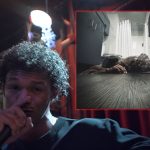


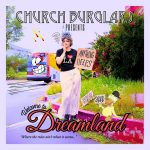
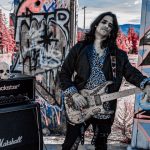
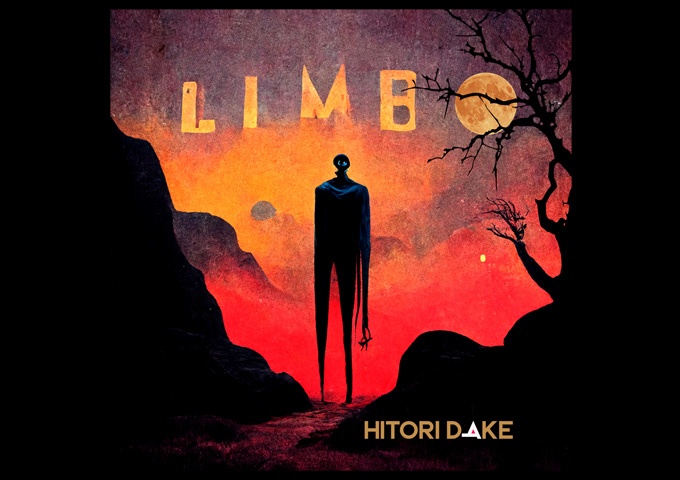
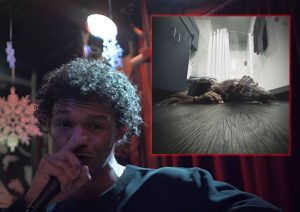
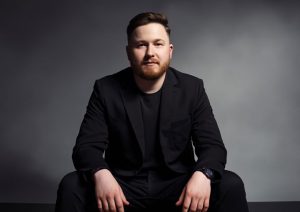
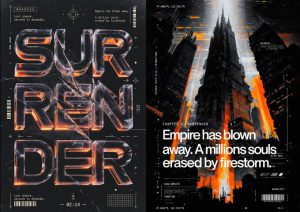
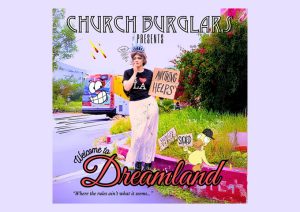
More Stories
“Hay Zeus”, Heavy History: Ty Bru on Legacy, Layers, and Letting Go at 20 Years of MTTS
The Cosmic Factory on 15 Years of Psychedelic Alchemy and the Making of ‘Lab Grown’
Detroit Soul, Modern R&B Elegance: An Interview with Reggie Braxton